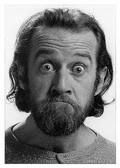Following is the essay you can designate as Volume 10, Number 34 of
This Week’s Clue, based on the e-mail newsletter I have produced since
March, 1997. It would be the issue of August 27.
Enjoy.
The Democratic Party has always been about governing, not belief.
This is a property of its history. The party from the beginning has been based on Southerners and urban machines. It was a party for working men, but also for racist elites.
So it became about power, and for a century only New York could really pull the strands together. New York reformers Grover Cleveland and Franklin D. Roosevelt were the only Democrats to win majority support between 1860 and 1960. Both were upstate New Yorkers who ran around their own party’s elites, Cleveland to the Mugwumps and Roosevelt to the Populists, in order to win. (Woodrow Wilson and Harry Truman were, like Bill Clinton, elected by a plurality of the popular vote, not a majority.)
It is belief which sustains a party, which transforms it into a movement that can win majority support even without a great leader.
For 40 years Democrats have mainly run against something. "We’re all Nixon’s niggers now," said George Carlin
in 1973, and that’s been the heart of the party’s platform ever since. We know what we’re against. We know who we’re against. What we stand for is unclear.
This is especially true now that the Nixon Thesis of Conflict has reached its end. While Netroot bloggers continue to argue against the latest atrocities, both federal and state, they have spent far less time laying down their own belief systems, their own points of agreement, their own myths and values.
I have stated here that the new Thesis for Democrats should be based on the myths and values of the Internet. Consensus moves us forward. Access to the tool is the key to progress. Transparency is essential. These are the values we have seen work on the Internet, in standards bodies, in business models, and in governance. When the Internet’s working right these are the values which prevail, and I believe most Netroots bloggers have internalized them to such a degree they’re not even aware of it.
But what about the candidates?
Hillary Clinton has spent a lifetime sailing into the wind of
the Nixon Thesis. From her college thesis on Saul Alinsky, through her
first job as a junior Watergate prosecutor, and through her first
political career with Bill, she has leaned into that wind like a
sailboat captain. That’s what the Clinton AntiThesis was all about,
that was the Third Way, assuming the truth of the Nixon Thesis in
peoples’ hearts and adjusting course against it.
But now we are becalmed. The Nixon Thesis is dead. George W. Bush
killed it. He has cracked the mirror. There is nothing left of it but
shards, which people like Rudy Giuliani, Mitt Romney, and John McCain
have picked up and looked into. They think they see their own
reflections, but what they really see are just pieces of Nixon, and
everyone knows it.
Barack Obama calls on us to ignore the Thesis, to chart a new
course, which is good. But what course? As was said of Gary Hart a
quarter-century ago, where’s the beef?
You’re a good man, a bright man, with a good soul, but where do you
plan on leading us, and how do you plan on getting there? What are the
myths and values out of which you will build this new political thesis?
Must we guess? Americans aren’t good at guessing.
Franklin D. Roosevelt did not have any clearer ideas what his
political thesis was about in 1932 than Barack Obama does now, but he
didn’t leave people guessing. He spun a personal story out of his
claims of a "cure" for polio, of his renewed sympathy for the ordinary
worker. While New York Democrats supported Al Smith in 1932, he
outmaneuvered them with an appeal to southern and western populism.
Those forces don’t exist today.
With their own belief system dead, a lot of Republicans, as well as
Democrats, are looking for something or someone to believe in right
now. It always surprises me, working at Voic.Us, when I come upon a
story where Right Blogistan and Left Blogistan are singing in harmony,
but it happens. Here is an example from Virginia.
Generally it’s on issues of transparency (campaign finance reform), access (net neutrality), and connectivity (faster broadband) where consensus occurs.
This is a key Clue.
John Edwards,
despite his current low standing in the polls, is doing a better job at
understanding this than anyone else right now. I’m not saying he’s
perfect. But he’s doing a better job of listening to what people are
yearning for, and reflecting that back accurately, than anyone else at
the present time. As a trial lawyer trained to perform for juries, he
has the right skill set for the job. But is this a coherent philosophy,
or is it just an argument meant to persuade, so that if given the
chance to rebuild that Bridge to the 21st Century, left in the mud by
the Bush collapse, he’ll only get it as far as, say, 1935?
I don’t have any answers here. But these are the right questions.
They are not being asked by the major media, obsessed as it is on TV
values like personality, conflict, and tactics. They should be asked by
the Netroots, starting right now.
You, by the way, are the Netroots. These are the questions you should
be asking, the questions you should be demanding answers to:
- What are your political principles?
- What are your political values?
- What will this country look like, believe in, practice in 2017?
I say, believe in something new. I say, take the myths of the Internet, the values of the Internet, and spin something new from it. Spin a new story, a new Thesis which can lead us toward answering the real questions of our time, fighting the War Against Oil, fighting to save the planet.
But that’s just me.















